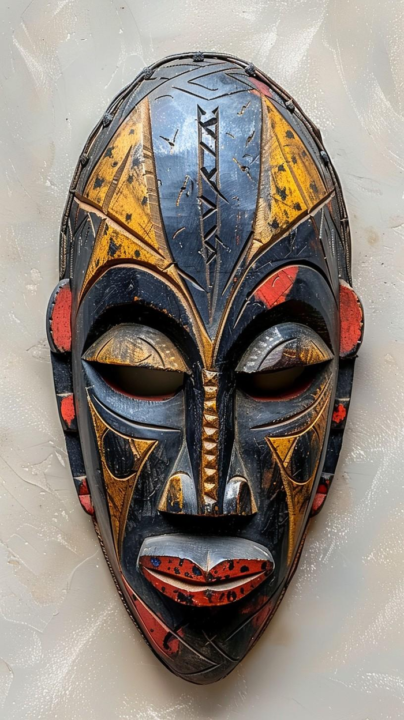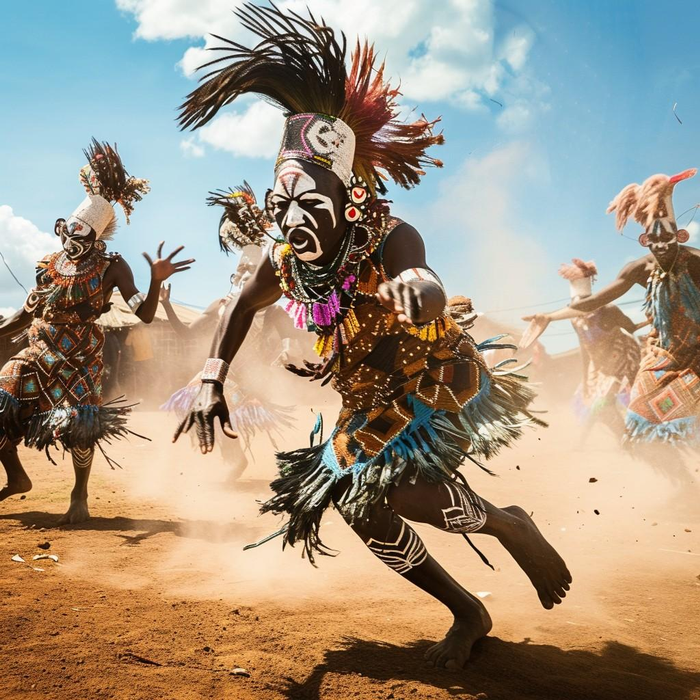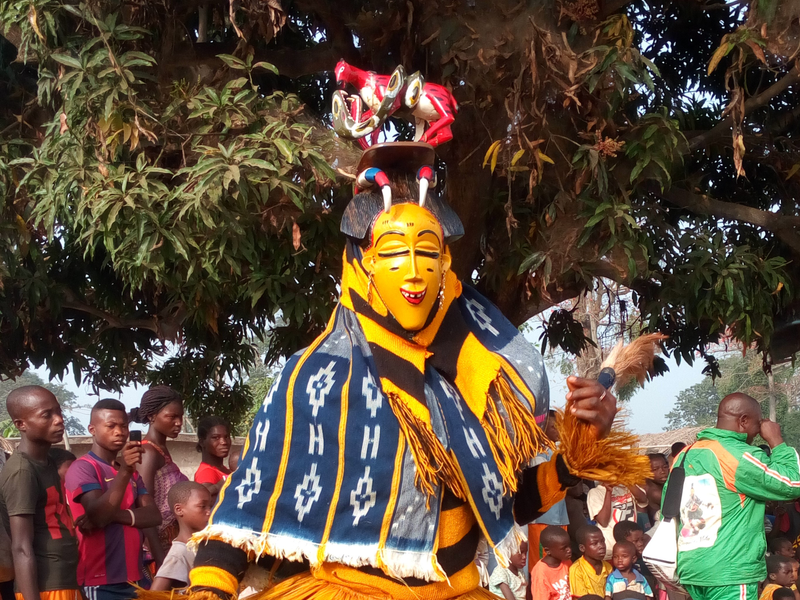Zaouli mask of the Gouro ethnic group from the western Côte d’Ivoire. Emmanuel Dabo, CC BY-SA 4.0, via Wikimedia Commons
The nation of Côte d’Ivoire (also called Ivory Coast) located on the South Coast of West Africa has a rich economic, political, and cultural history. Fondly referred to as the Jewel of Africa, Cote d’Ivoire has abundant natural resources while boasting a rich cultural heritage.
Among its many cultural events is the Fêtes des Masques also known as the Festival of Masks. The festival, which is among some of the notable cultural events in the country is commonly held in the region of Man. Located in the western part of the country, the region boasts spectacular fog-hidden mountains, spectacular waterfalls, and a forest occupied by sacred monkeys, and it is home to the Dan, Guere, and Wobe peoples.

The origin of the Fêtes des Masques dates back centuries when communities sought ways to pay homage to their ancestors and seek their guidance and wisdom on communal issues. The event is celebrated as a meeting point between the spirit of the ancestors which is believed to reincarnate in the masks after the performance of certain ritual ceremonies and the village community who honor these spirits by wearing various masks and adorning various colorful costumes.
During this event, a lot of dancing is involved with several competitions held among villages/communities to find the best dancers. It is believed that through these dances, the spirits who embody the different masks become one with the community/village.
The Fêtes des Masques is not just seen as a dance exhibition; it holds a profound cultural ritual that exemplifies the history of the people.
As a people, it is believed that the living and dead are still connected in one way or another, similar to the same cultural norms in many African communities, spirits of ancestors are held in reverence and believed to be part of the community and play a role in influencing critical decisions that would positively impact on the growth of the communities.
The masks act as a connecting link to these ancestral spirits. When worn by dancers after certain ritual requirements, it is believed that these masks not only embody these spirits but also create a spiritual link between the human and spirit world. This link becomes crucial in ensuring that the community continues to receive the blessings and guidance of its ancestors.
More importantly, the festival serves as a unity builder as the event brings together various communities from different villages. Rehearsals for the songs and dance activities, designing and crafting of masks as well as the sacred ritual preparations are all activities that deepen community cohesion and foster community togetherness.

Image: StockCake
The festival then presents the community an opportunity to celebrate their shared history and renew their commitment to their cultural heritage.
Culture and tradition have always remained the core identity of a people and serve as a means by which the next generation is educated and informed about the values and beliefs that govern their society. The festival provides a learning opportunity for the younger generation to know more about their history and the importance behind certain rituals and activities.
The Fêtes des Masques is a celebration that merges the spiritual with the physical and continues to create a consciousness of the importance of deepening community roots as a way to build a more lasting African society.

Okechukwu Nzeribe works with the Onitsha Chamber of Commerce, in Anambra State, Nigeria, and loves unveiling the richness of African cultures. okechukwu.onicima@gmail.com





